Note: This post contains mention of suicidality.
“Why is it that siblings with similar trauma cope differently?” That’s the question that Judy, a hypnotherapist with a master’s degree in cognitive and social psychology, went viral for asking and answering on TikTok.
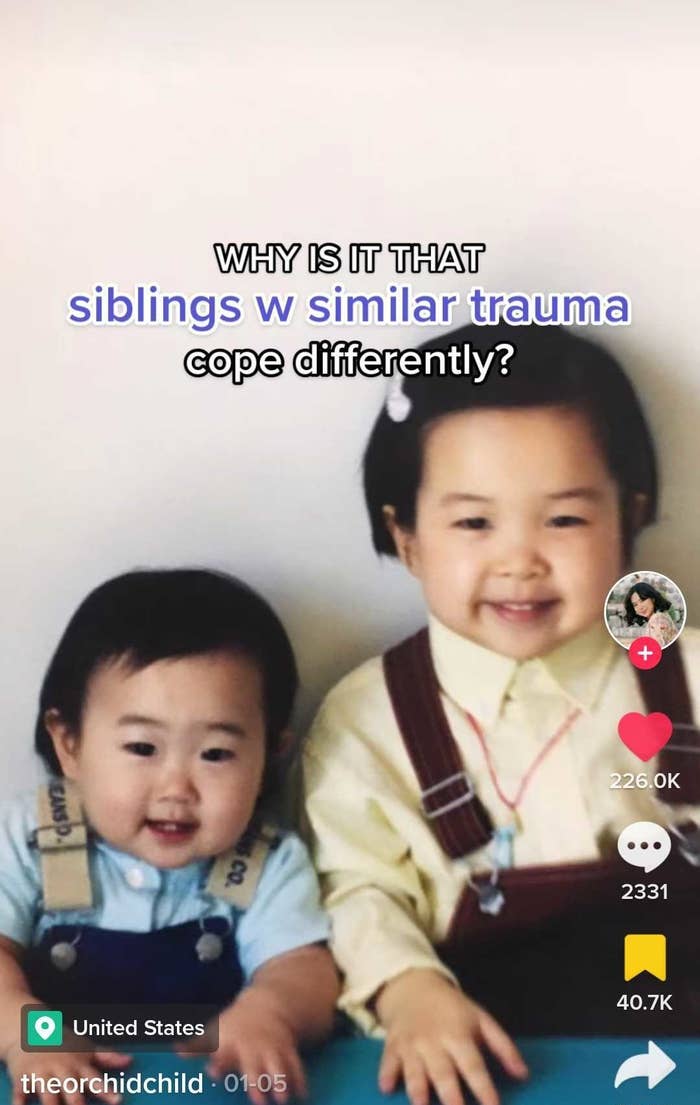
“If you were raised in an unsafe household and you have a [sibling], I want you to ask yourself, ‘Is one of you way more sensitive than the other one?’” Judy begins her video. “When I say sensitive, I’m not just talking about being emotionally sensitive. I’m talking about how sensitive one is to sound, to food, to allergies, to the fabric of clothing — just generally sensitive to the environment.”
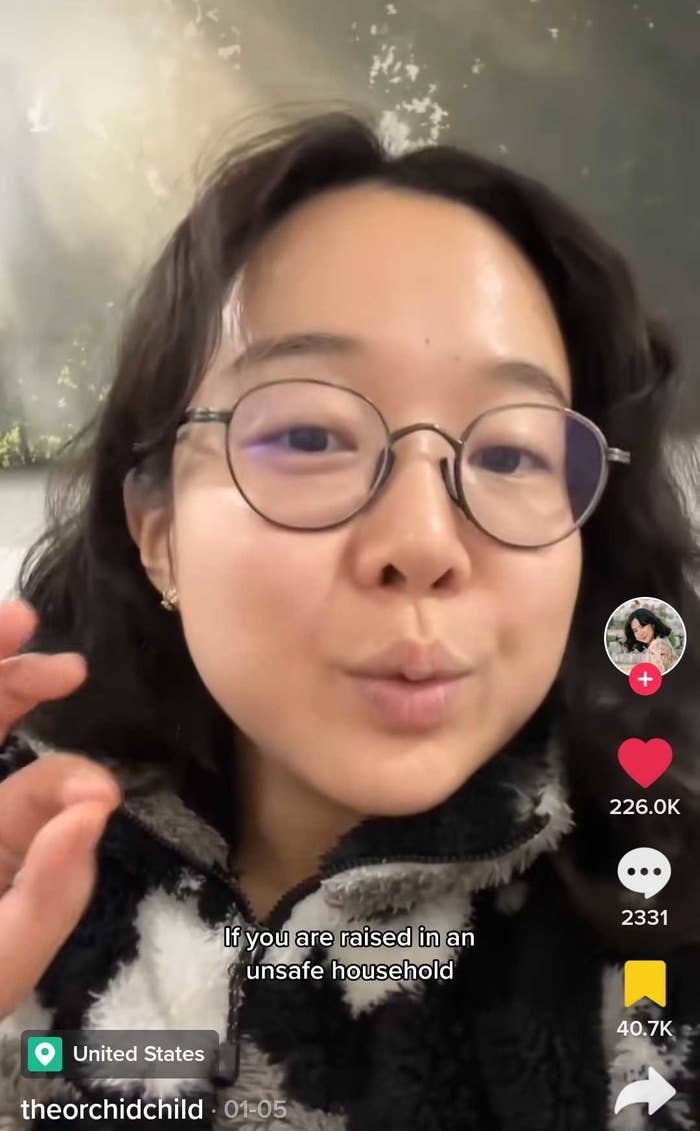
“There always seems to be that sibling who does really well,” Judy continues, her voice narrating over videos of her and her younger sister, “and the sibling who doesn’t do as well in an abusive environment.”
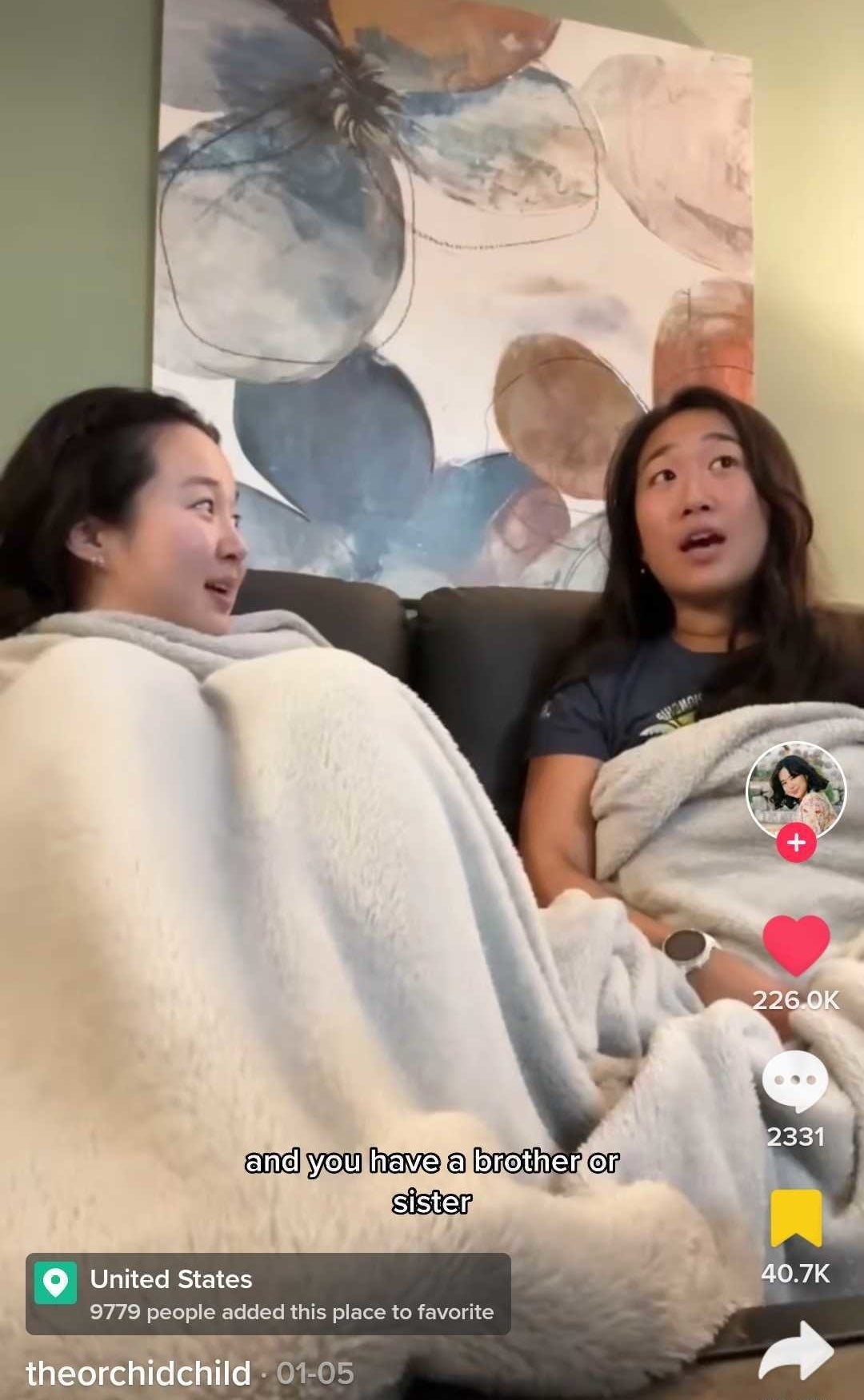
The video then cuts to show Judy speaking directly into the camera: “While I was in grad school, I actually learned that there’s a term for this. Somebody who is highly resilient in an abusive household is called a dandelion child. They can basically thrive in any environment like the flower the dandelion, itself.”
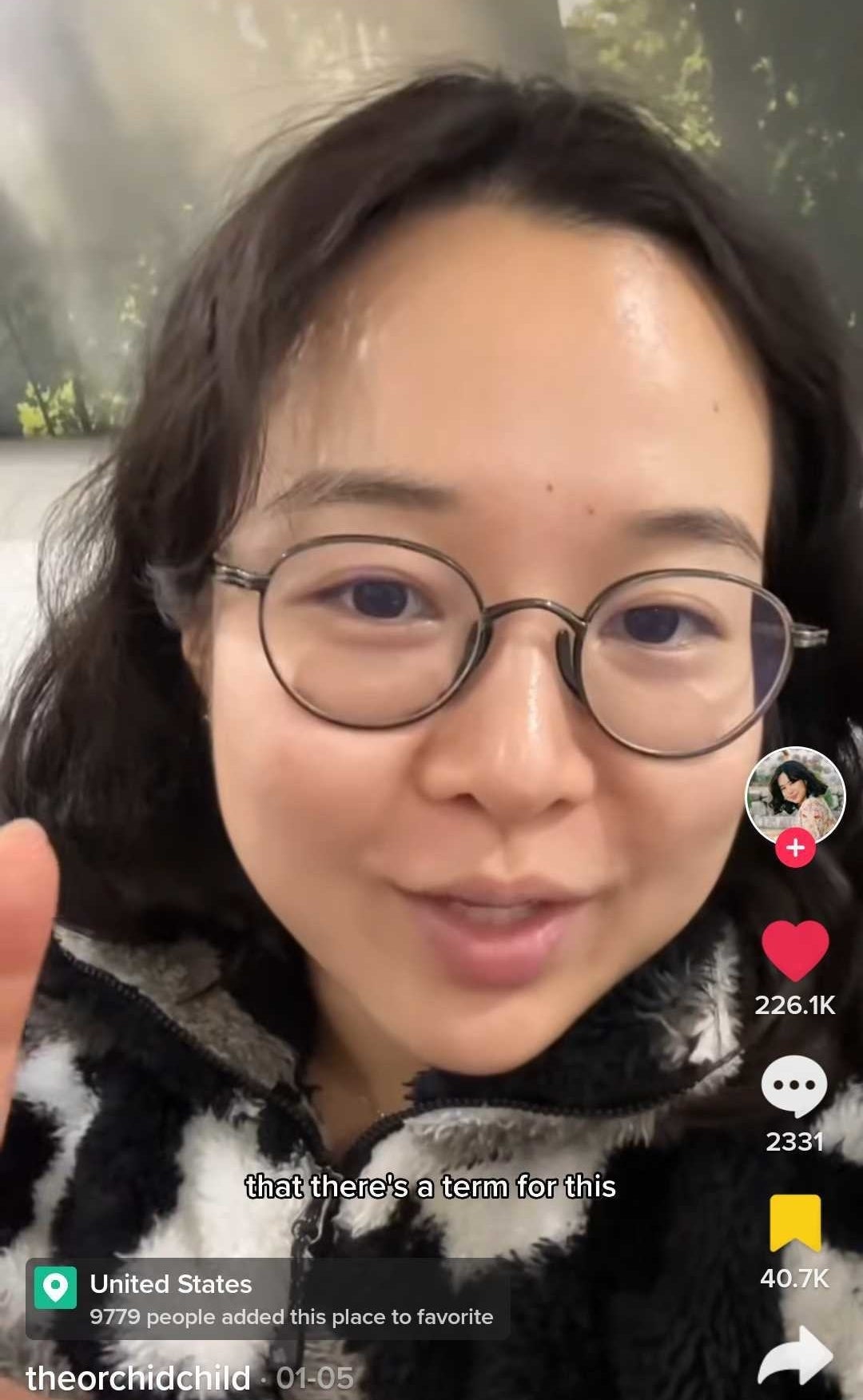
“But orchid children are highly sensitive to their environment, so they can actually wilt or wither away in an abusive environment, or thrive and do really well in a positive one,” Judy says. “Of course, at first glance, it seems that one is much more preferable than the other. But what was really interesting was a small piece of evidence that demonstrated if an orchid child is removed from that abusive environment and grows up and is then replaced into a nurturing and nourishing environment, they can actually surpass their dandelion counterparts.”
“I think the moral of the story is that, as orchid children, it becomes doubly more important for us to find a beautiful community to be a part of,” Judy — who fittingly goes by @theorchidchild on TikTok — concludes her video.
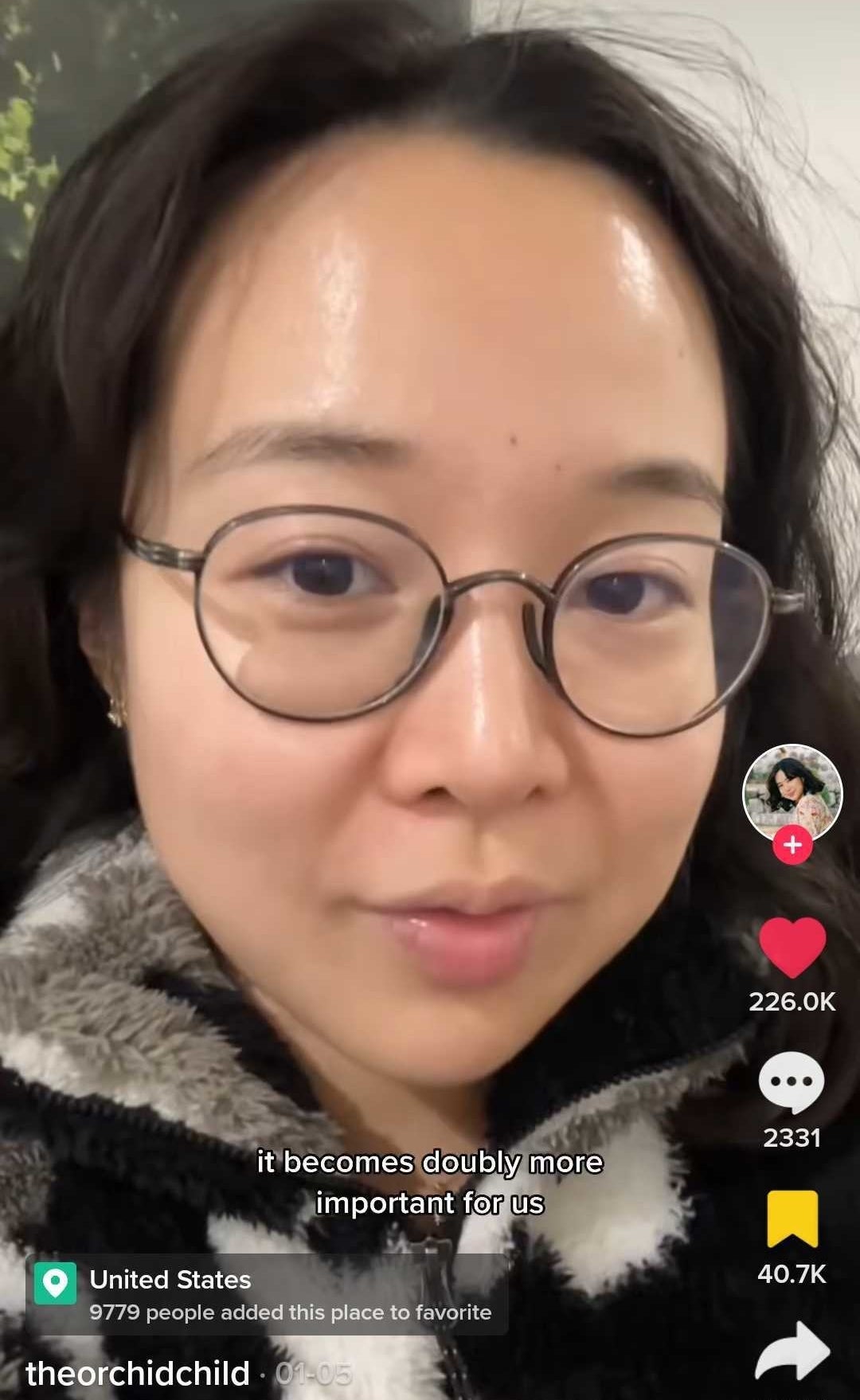
Though Judy, who currently runs a hypnotherapy and holistic practice called the Orchid Child, made the video to share the meaning behind her business’s name, it quickly went viral and amassed more than 1.3 million views on TikTok. More than 2,000 people commented on it, expressing gratitude, validation, and hope, as well as sharing which type of child they or their siblings identified as.
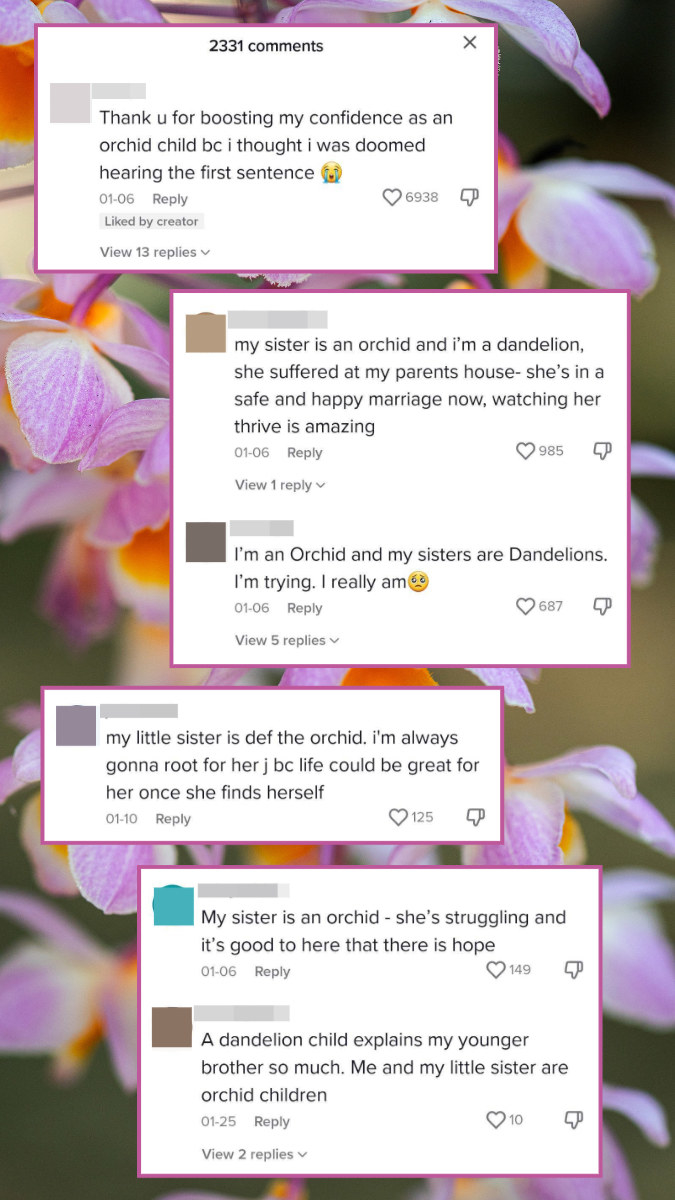
“The purpose of this video was to show orchid children that our lives are valuable,” Judy told BuzzFeed. “Dandelion children and orchid children bring different genetic values to the pool. That’s why both types of genes have persisted so long over generations — because we need both types of people.” In fact, Judy revealed that orchid and dandelion children exist on opposite ends of the spectrum. There’s actually also a third type of child: the tulip child, which falls somewhere between the orchid and dandelion extremes.
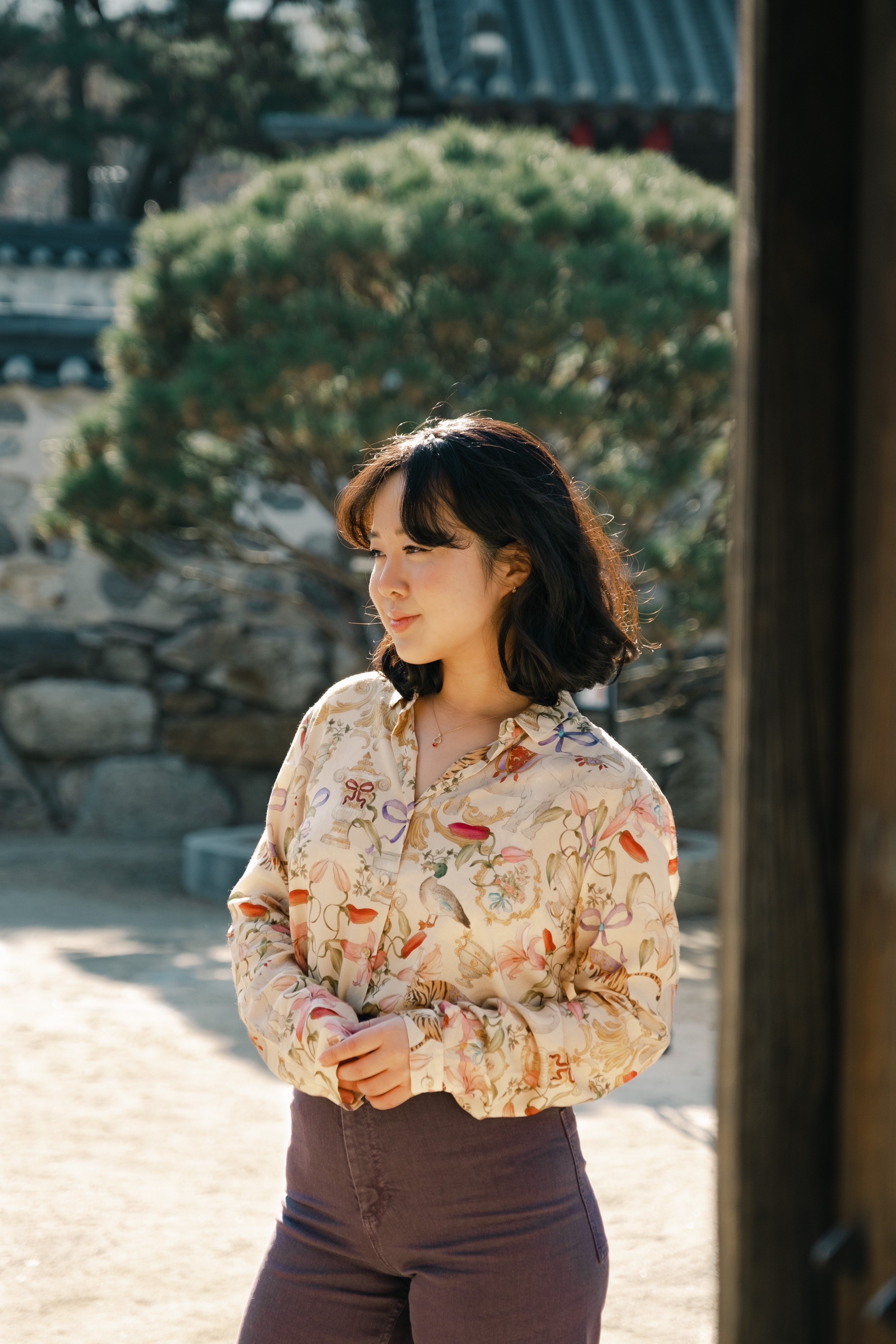
“Orchid children are more biologically sensitive to their environment,” Judy explained. “So, when in stressful home situations, they have poor pro-social behaviors like altruism, poor engagement in school, and poor academic success. All the while, dandelion children — even if they’re in the same household — fare well, at least as it looks from the outside. But if the home environment for the orchid child becomes safer or more stable, their markers show they actually end up doing better than the average of their peers at school, both academically and socially.”
Judy learned about orchid and dandelion children during grad school in a developmental psychopathology class, wherein she studied how psychopathology forms in the early developmental stages of childhood. “The unit was about maltreatment and childhood resilience,” she recalled. When her professor, who’s done trauma and attachment work, introduced the topic, Judy immediately identified as an orchid child.
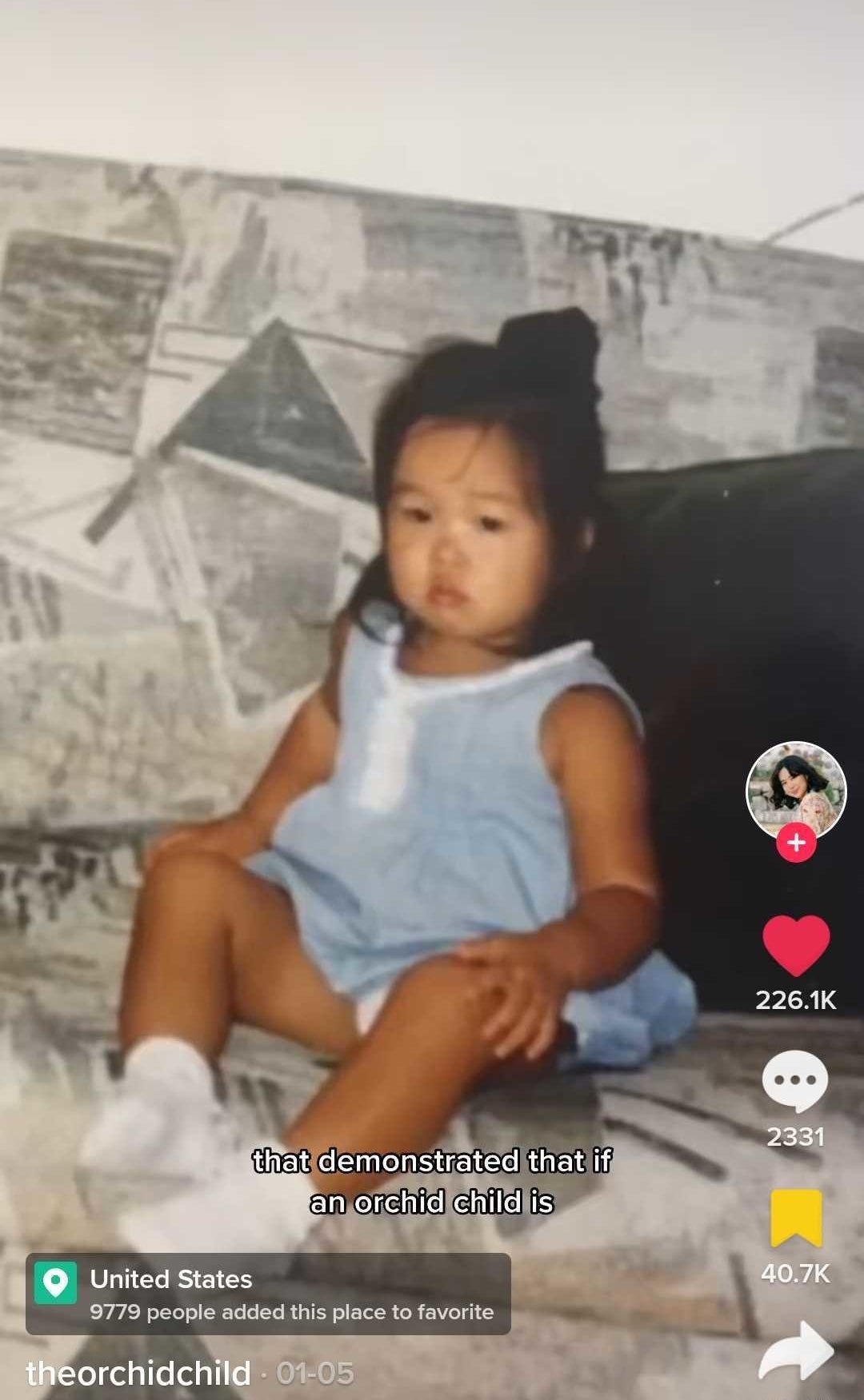
“I immediately stopped in my tracks,” Judy shared. “I was like, ‘Oh my god, this is me.’ For so long, I was feeling resentment toward my dandelion sister. She had a 4.0 GPA. She had three majors. She paid off all her loans before she graduated. She’s that kind of hyper-successful person, and we were raised in the same environment. We have the same resources. But for some reason, I was the one who was stuck with the mental illness labels; I had chronic physical illnesses. I had things like eczema and skin disorders. I was like, ‘What did I do wrong? What did I do differently that set us apart like this?’”
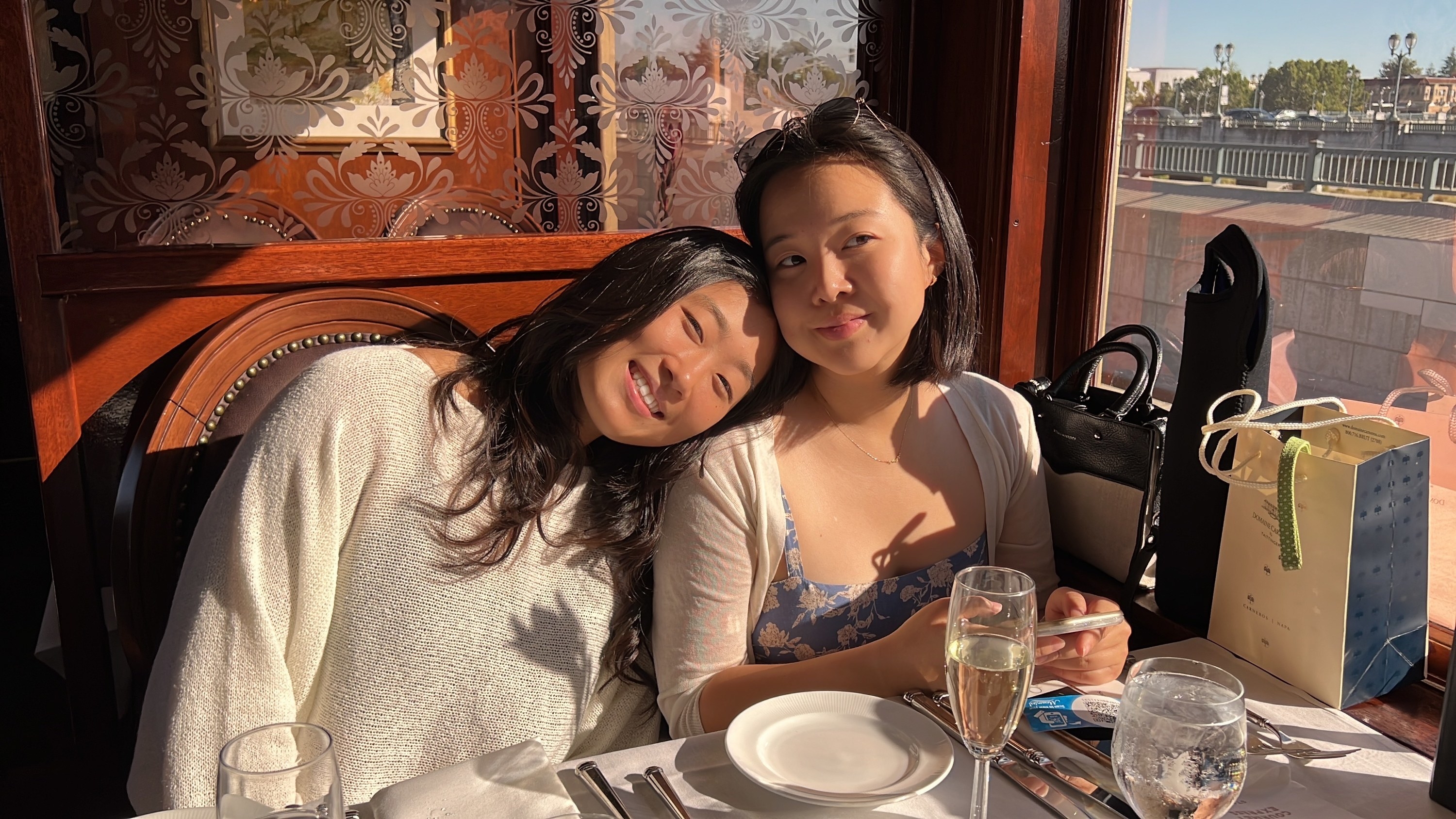
“It wasn’t until later, when my sister and I had a conversation, that she was like, ‘You know, I felt like I had to keep our family together because we were falling apart,’” Judy revealed. “She had no choice but to be the strong person in our family. While I was off getting treatment for my PTSD and suicidality, she was the one having to dig her heels into the ground and really keep our family together, so to speak. I shared this study with her and she was like, ‘That makes so much sense.’”
Judy’s parents ultimately divorced, and her father (also a dandelion child) raised Judy and her sister alone for most of her sister’s life. “Because I was the only super sensitive one — coupled with Korean, conservative ideologies — my dad was very shocked and confused when I started showing symptoms of depression, bipolar, and PTSD,” Judy said. Nevertheless, on top of seeking treatment for Judy, he found a family therapist for them all and began seeing therapists on his own, taking out numerous loans to afford all the treatments.
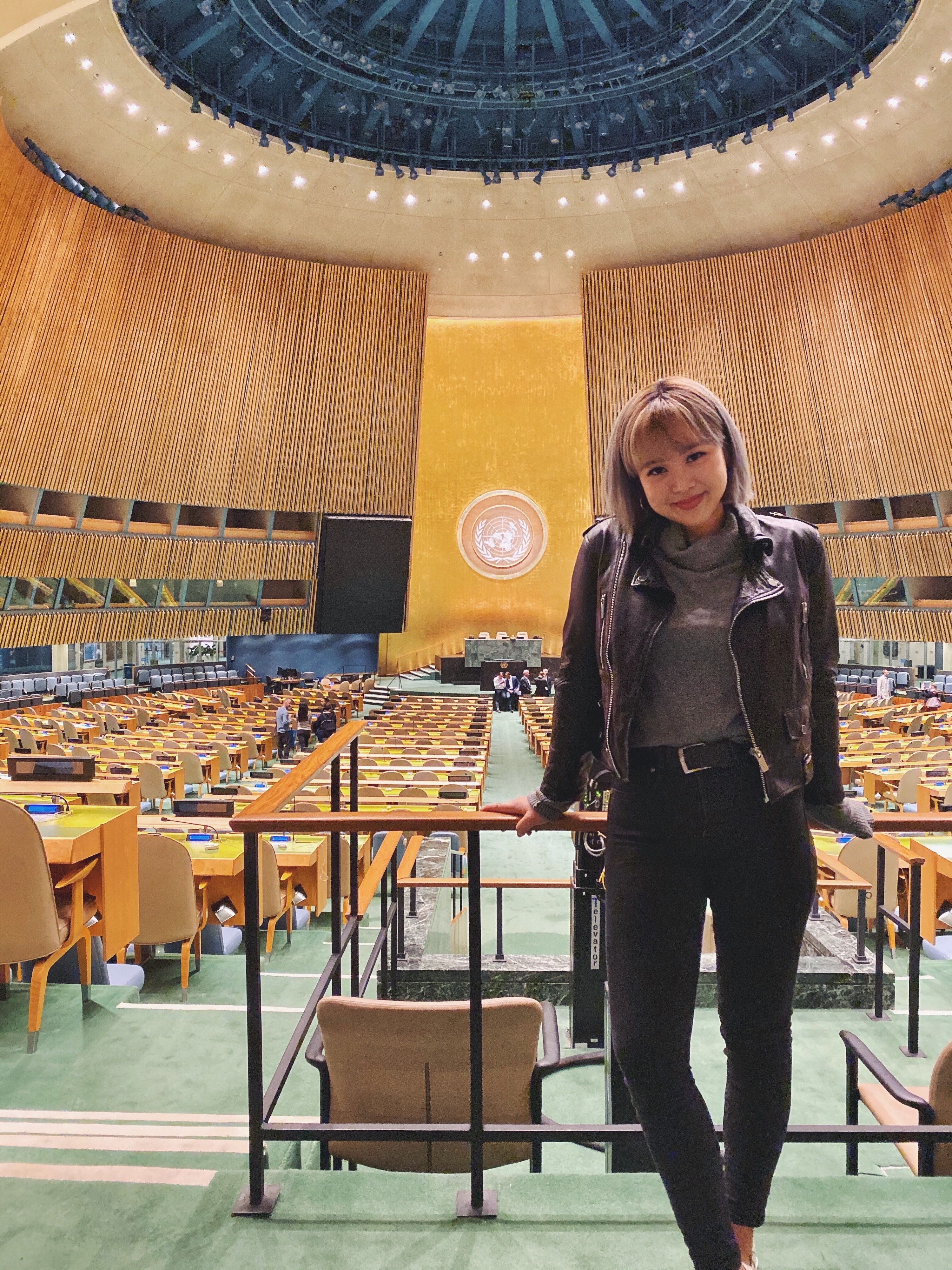
Years later, Judy learned of the debt her father had accumulated and that her stepmother — whom her father had married during Judy’s sophomore year of college, where she studied psychology — took it upon herself to pay off all of his loans. “That was when it first clicked for me,” Judy said. “This is what unconditional love is. This is what a safe healthy environment can look like for me. That’s when I think my replanting process began, so to speak.”
“I didn’t realize all this debt my dad had accrued from giving us this treatment. It’s still crazy to me that this man knew nothing about mental illness. Then, his daughters are suffering so much, and he just poured everything into getting us the treatment we needed.”
Now, Judy maintains a healthy relationship with her father, mother, stepmother, and sister. “Once I was able to work through my own beliefs about what a healthy interpersonal and also intrapersonal relationship looks like, I found it way easier to magnetize healthy relationships,” she said. “While it took decades, I did it.”
More recently, after a months-long conversation with her sister about their relationship, Judy finally felt ready to share her journey as an orchid child, as well as the story behind her business’s name, in her now-viral video on TikTok.
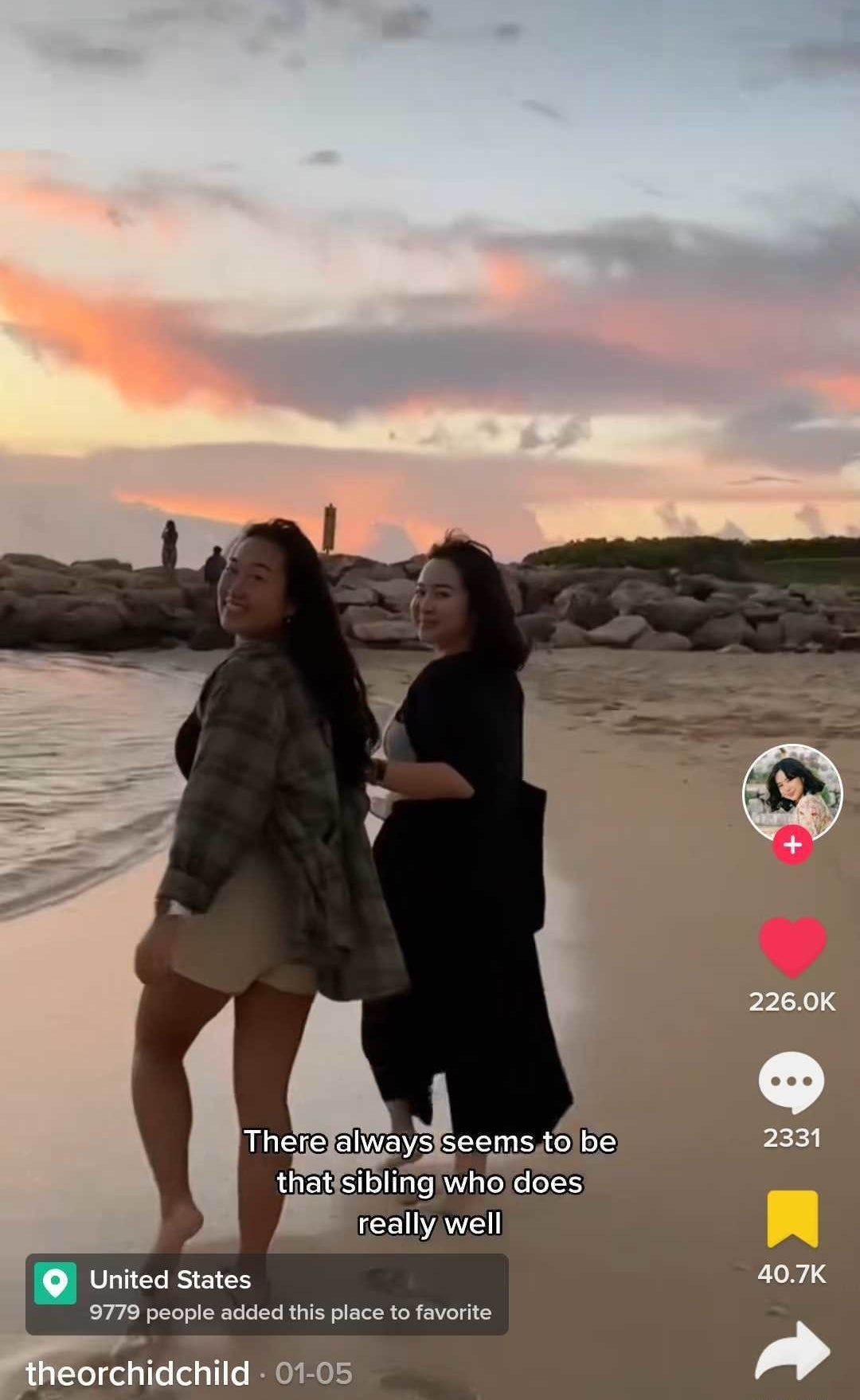
“I did not expect it to go viral at all. It was very ad hoc,” Judy reflected, adding that had she known the video would go viral, she would’ve added citations and (more jokingly) worn makeup. While the 2,000+ comments did become overwhelming for her to keep up with, she found the overall experience to be humbling and transformative.
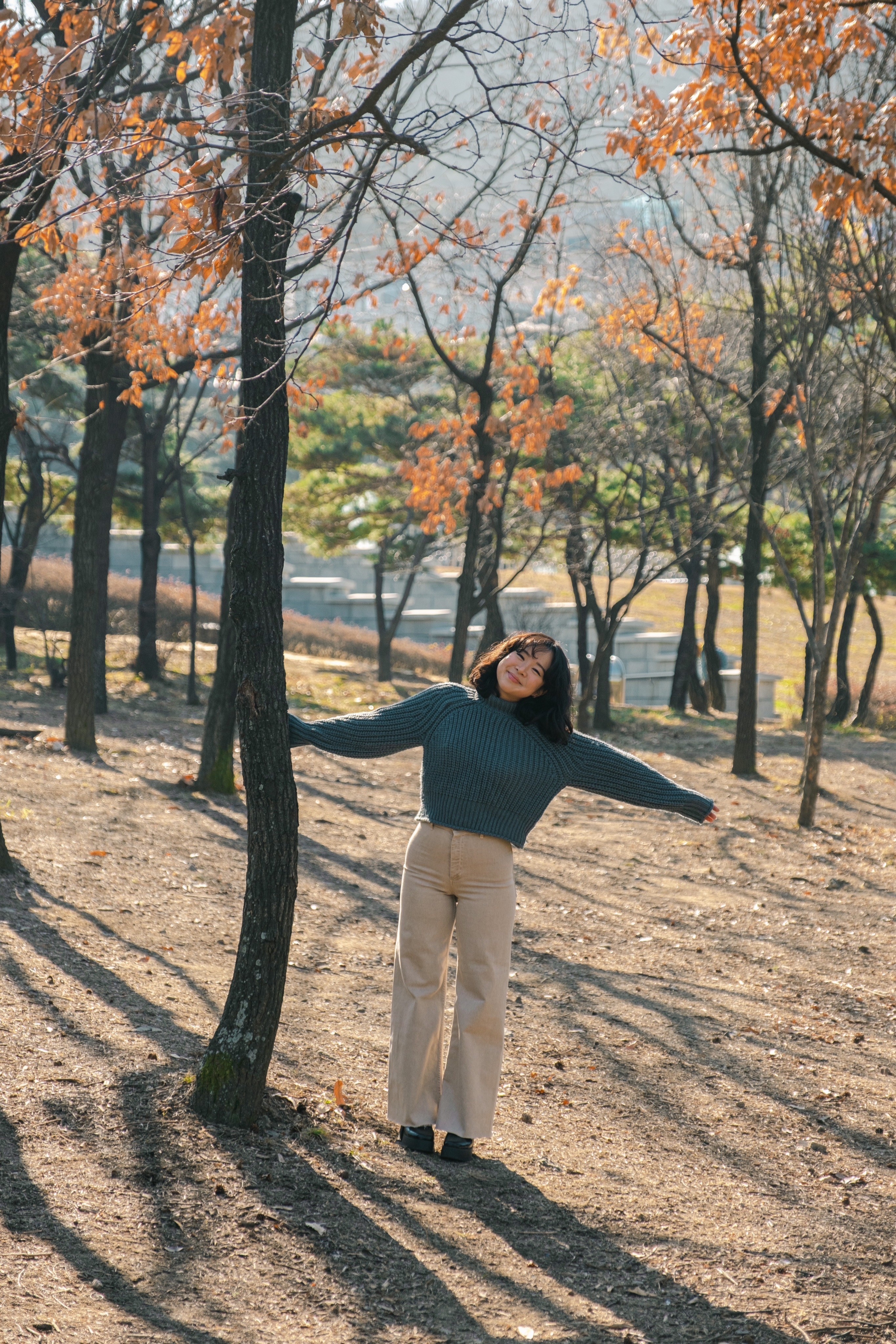
“One is not better than the other, you know,” Judy ultimately concluded. “Both have very distinct strengths, and we need both types of humans. It’s important to not put one down below another or one above another.”
For more from Judy, visit her site here and follow her on TikTok here. For more information on biological sensitivity and orchid vs. dandelion children, see the resources below:
• The Science of Success by David Dobbs
• With Support, 'Orchid' Children's Stress Can Bloom Into Strength by Anne McIlroy
• The Orchid and the Dandelion by W. Thomas Boyce, M.D. (or his TEDx Talk here)
Which type do you feel you identify with — the orchid child, the dandelion child, or maybe even the tulip child? What about your siblings? Let us know your thoughts in the comments below.
The National Suicide Prevention Lifeline is 1-800-273-8255. Other international suicide helplines can be found at befrienders.org. The Trevor Project, which provides help and suicide-prevention resources for LGBTQ youth, is 1-866-488-7386.
The National Alliance on Mental Illness helpline is 1-888-950-6264 (NAMI) and provides information and referral services; GoodTherapy.org is an association of mental health professionals from more than 25 countries who support efforts to reduce harm in therapy.
